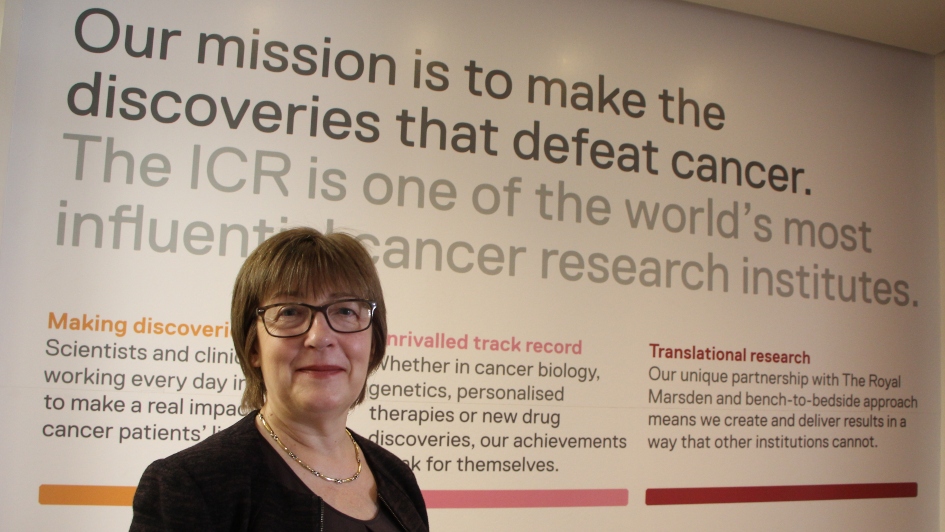
Over the last few years, advances in science have given us a new understanding of cancer. We increasingly see the disease as a complex ecosystem, in which cancer cells evolve amid a mesh of cells and signals from surrounding tissue and the immune system.
In our new strategy, Defeating Cancer, we view cancer research as an ecosystem too, with close interconnections between our research and teaching, and our knowledge exchange work, to maximise our impact on patients.
The importance of education, training and careers support within that ecosystem is reflected in one of the three pillars of this new strategy - Inspiring tomorrow's leaders. Here, we set out our aspirations to empower our students and early-career researchers to become tomorrow’s leaders in cancer research and treatment.
We also recognise the need to readily adapt to the changing world to make sure we continue to play a vital role in building the future cancer research community globally. Throughout this strategy, we will offer research students a truly exceptional educational experience across the range of our research, and one that prepares them for new ways of doing science.
Education is driven by innovation
We want our research students to gain experience in cutting-edge science, technology and computing within a modern, multidisciplinary research environment, and also to learn how to innovate by collaborating across traditional research boundaries.
One way we are already doing this is through our MRC-funded Doctoral Training Programme. It includes taught elements in the first year – offering the insights of PhD students here at The Institute of Cancer Research into our latest understanding of cancer’s complexity, ecosystems and evolution, and covering areas such as artificial intelligence and data science. This will provide the knowledge, skills and foundations they’ll need to talk across boundaries and become the information literate researchers they will need to be in the future.
Similarly, we plan to evolve the curricula of our postgraduate taught degree courses to take advantage of the latest scientific and technological advances. Through our MSc in Oncology, our teaching provides the clinical leaders of tomorrow with education in the scientific discoveries that underpin their work.
But it is not only the subject matter itself that continually evolves. The learning environment and teaching delivery must also progress alongside new methodologies and technologies. That’s why we’re delighted to have been awarded £1.4 million in funding from the Office for Students to build a modern and flexible learning suite in Chelsea. These state-of-the-art new facilities will support our onsite MSc training activities,as well as our proposals to expand the ICR's education and training programmes, which include opportunities for immersive online collaboration.
This investment will also allow us to build on the lessons we learned from the changes we had to implement to our taught courses during the pandemic. It will enable us to provide our students with increased flexibility - and to introduce hybrid approaches to delivering our courses – retaining the benefits of face-to-face networking while also gaining flexibility from remote teaching where appropriate.
A modern, multidisciplinary research environment
The plans of this new strategic period embrace our vision to be an excellent organisation where brilliant and diverse people work together as One ICR to support our science.
We plan to seek new partners and funding sources, so we can recruit students across a wider range of disciplines who can play a vital role in an increasingly diverse cancer research community. We’re particularly looking to attract funding for studentships in data science, computational science and artificial intelligence.
We also want our educational opportunities to benefit researchers who are not following typical academic career paths. That’s why we plan to explore if other types of model – such as ‘PhD by Publication’ – could potentially benefit staff whose research has been conducted mostly or entirely at, or in partnership, with the ICR.
Ensuring we maximise the multiple interconnections that already exist within and around the ICR, we’re confident that we can continue to inspire tomorrow’s leaders. We hope our graduates will continue to go on to leadership positions in science and industry, extending our mission to defeat cancer to benefit patients worldwide – and further reinforcing the ICR’s status as a world-leading centre for the education of cancer researchers and clinicians.
